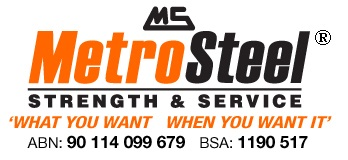 Although metals are useful they’re not always perfect for the job we want them to do. For instance, iron, is extremely strong but it can also be brittle and when it’s exposed to damp air it can also rust. Another example is aluminium. It’s a lightweight metal, but in its pure form it can be too soft and weak to be much use for anything. This is why the majority of ‘metals’ that we use in our everyday lives aren’t exactly metals but are in fact ‘alloys’. This means that they’ve been combined with other substances to make them harder, lighter, stronger, or better in some way.
Although metals are useful they’re not always perfect for the job we want them to do. For instance, iron, is extremely strong but it can also be brittle and when it’s exposed to damp air it can also rust. Another example is aluminium. It’s a lightweight metal, but in its pure form it can be too soft and weak to be much use for anything. This is why the majority of ‘metals’ that we use in our everyday lives aren’t exactly metals but are in fact ‘alloys’. This means that they’ve been combined with other substances to make them harder, lighter, stronger, or better in some way.
One of the main benefits to be gained from metal alloys is that it can strengthen metal or reduce costs while at the same time maintaining most of it’s own significant properties. Take iron as an example. It’s strong and durable as a metal on its own, but when mixed with carbon it becomes the alloy known as steel, which is not only stronger than iron but lighter too. This makes it an excellent material for building tall structures, vehicles, ships, appliances, and weapons as well as for general industrial metal fabrication. Let’s take a closer look at some of the more common alloys.
-
Aluminium alloys use aluminium as the predominant metal which is then mixed with copper, zinc, magnesium, and other metals. Aluminium can be manufactured in more ways than any other metal in the industry and both architectural and industrial metal fabricators tend to lean towards aluminium because of the fact that it is durable and lightweight.
-
Bronze is frequently used in the production of coins, turbines, and blades because it’s durable and tough. Commercial bronze is an alloy of copper, making it stronger than copper and more heavy than steel, and what’s more it has a low melting point.
-
Brass is widely used to manufacture nuts and bolts, door hardware, clock components, pipe fitting, gas valves, seawater piping, marine engines and more. An alloy of copper and zinc, it also has an acoustic property that makes it perfect for casting musical instruments.
-
Stainless steel mixes steel (ie iron/carbon) with chromium, aluminium, or other elements to form a metal that is highly resistant to corrosion. It’s available in many different grades and as a result used in thousands of applications from industrial and surgical equipment through to door fittings and cookware. When mixed with chromium, stainless steel is resistant to rust.
-
Titanium is a metal alloy that is used in a variety of applications from dental implants and jewellery to ship propellers and racing cars. It’s flexible, lightweight, and corrosion resistant. It’s also twice as strong as steel and aluminium and as resistant to corrosion as platinum.
When deciding which metal alloys to use for your next project, application is key. Considerations include whether you want a malleable metal which can be easily shaped, a flexible metal which won’t break when it’s bent, or a strong and durable alloy. Naturally if a metal project is to be exposed to the weather, then durability and corrosion resistance are of prime importance. Although durable metals may cost more they are likely to be more durable, which is of benefit to the project.
Our experienced team at Metro Steel will be pleased to advise you on the most suitable metal alloys for your metal fabrication project, so why not call in for a chat or contact us on 07 3204 1000 to discuss how we can help you.
 Talk to an Expert (07) 3204 1000
Talk to an Expert (07) 3204 1000 Working Hours - Mon – Fri 7:00 AM – 4:00 PM
Working Hours - Mon – Fri 7:00 AM – 4:00 PM